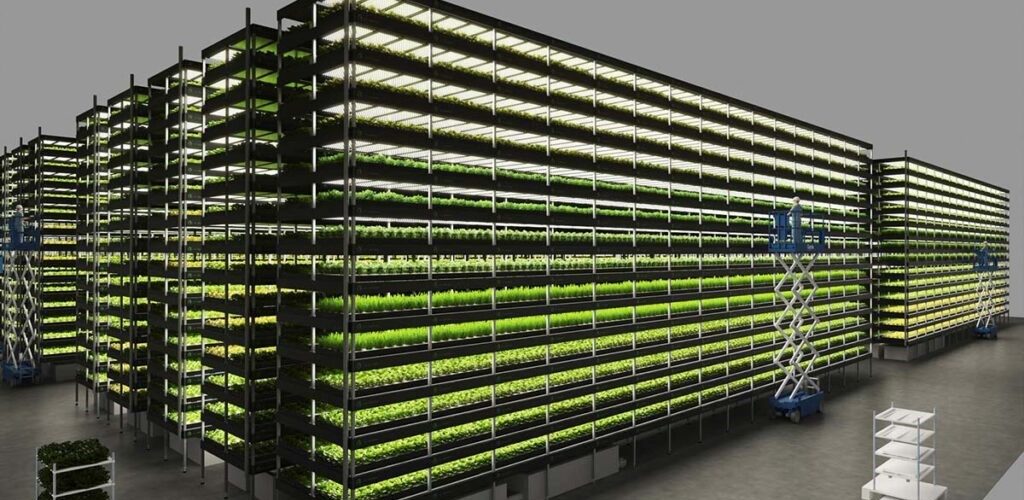News & Events
The article below is taken from ‘techtarget’ aiming to help IELTS candidates boost their vocabulary and have enough ideas for them to fully cover any topic in Speaking and Writing. The useful ideas are written in Bold, collocations are shown in red with relevant terms being underlined, followed by their definitions coming along.
Vertical Farming
Vertical farming is the practice of growing produce in vertically stacked layers. The practice can use soil, hydroponic or aeroponic growing methods. Vertical farms attempt to produce food in challenging environments, like where arable land is rare or unavailable. The method helps mountainside towns, deserts and cities grow different types of fruits and vegetables by using skyscraper-like designs and precision agriculture methods.
Most vertical farms use enclosed structures similar to greenhouses that stack vertically, either directly above each other or staggered for better natural light exposure. If saving space is of utmost importance, hydroponic methods as a growing medium instead of soil allow for reduced weight and lower water requirements by up to 70%. The use of aeroponics further reduces weight and water requirements. Most vertical farms are either hydroponic or aeroponic and do not have runoff, which would make the potted plants heavier.
Vertical farming typically uses a mix of natural light and artificial light. Artificial lighting is often LED-based and may be driven by a renewable power source such as solar power or wind turbines.
Supporters of vertical farming praise the impact it can have now and in the future to increase food security and have a positive impact on human health. It would reduce the amount of farmland needed, which could decrease deforestation and pollution, and help urban areas be self-sufficient.
Critics of vertical farming claim that most designs don’t efficiently deliver the necessary artificial light to keep the design green. Many vertical farms have hefty electric bills to produce good yields. Furthermore, the necessity for vertical farming is disputed as critics argue that the problem is not a lack of farmable land but inefficient usage.
ON-TOPIC ITEMS:
- produce: noun /ˈprɒdjuːs/
agricultural and other natural products
- arable: adjective UK /ˈær.ə.bəl/ US /ˈer.ə.bəl/
arable farming land is used for, or is suitable for, growing crops
- precision: adjective [ before noun ] /prɪˈsɪʒən/
used to describe machines, tools, etc. that are made to a very accurate and exact standard
- medium: noun [ C ] UK /ˈmiː.di.əm/ US /ˈmiː.di.əm/ plural media or mediums
a method or way
- runoff: noun UK /ˈrʌnɒf/ UNCOUNTABLE
a flow of water or chemicals from one place to another, especially when this damages the environment
- artificial: adjective US /ˌɑr·t̬əˈfɪʃ·əl/
made by people, often as a copy of something natural
- renewable: adjective UK /rɪˈnjuː.ə.bəl/ US /rɪˈnuː.ə.bəl/
renewable forms of energy can be produced as quickly as they are used
- solar: adjective [ before noun ] UK /ˈsəʊ.lər/ US /ˈsoʊ.lɚ/
of or from the sun, or using the energy from the sun to produce electric power
- deforestation: noun [ U ] UK /diːˌfɒr.ɪˈsteɪ.ʃən/ US /diːˌfɔːr.əˈsteɪ.ʃən/
the cutting down of trees in a large area, or the destruction of forests by people
- self-sufficient: adjective US /ˌself·səˈfɪʃ·ənt/
able to provide what is necessary without the help of others
- hefty: adjective UK /ˈhef.ti/ US /ˈhef.ti/
large in amount, size, force, etc.
- dispute: verb /dɪˈspjuːt/
to disagree with or express doubts about something
Javidan Language Centre
www.rashtielts.ir

